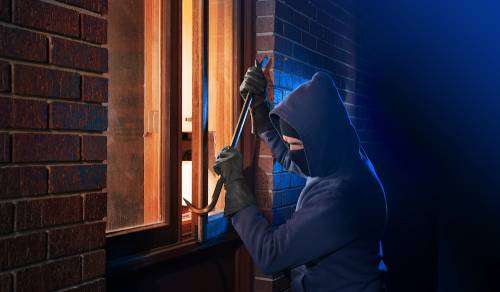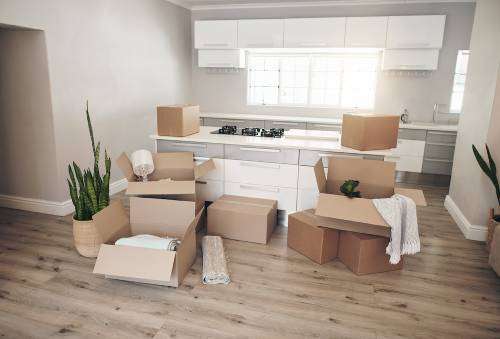
There are a number of reasons why you might need unoccupied property insurance. Perhaps you’re leaving your home empty while you go on an extended holiday, or maybe you’ve had to move out for a while and need to make sure your property is protected. Alternatively you could be a property developer who is waiting for the relevant permissions before work can start on an acquired property.
Whatever the reason, unoccupied property insurance is an important safeguard to have in place. In this blog post, we’ll take a closer look at what unoccupied property insurance is and why you might need it.
What is Unoccupied Property Insurance?
If you own a property in the United Kingdom that is unoccupied for more than 30 days, you will need to get unoccupied property insurance. This type of insurance protects your property from damage or theft while it is unoccupied.
Unoccupied property insurance is a type of insurance that covers your property when it is empty for more than 30 days. Your mortgage lender will require you to have this type of insurance if your property is unoccupied for this length of time.
There are two types of unoccupied properties, those that are undergoing refurbishment and those that are not. If your property is undergoing refurbishment, you will need to purchase a different type of insurance called undergoing renovation insurance. This article will deal with those that are not.
The Risks Associated with Empty Properties
Property developers may have to leave a property unoccupied for an extended period while they wait for the relevant permissions to be granted or contracts to be set up and approved. Similarly, homeowners may sometimes be away for long periods on vacation or business. If you’re leaving your property unoccupied for an extended period of time, there are a few risks you should be aware of.
Here are some of the risks associated with leaving a property unoccupied:
Vandalism and burglary
An empty property is an easy target for vandals and burglars. If your property is unoccupied, be sure to take steps to secure it against break-ins.
Fire
An unoccupied property is more susceptible to fire damage. Be sure to have working smoke detectors and a fire extinguisher on hand, and consider having someone check on your property periodically to ensure everything is in order.
Water damage
Water damage is one of the most common risks associated with an unoccupied property. If a pipe bursts or there is a leak in the roof, it can go undetected for days or weeks, causing extensive damage. To prevent this, be sure to shut off the water supply to your property before you leave, and have someone check on it periodically to ensure there are no leaks.
Mould
Mould can grow quickly in an unoccupied property, especially if there is water damage. Mould spores can cause health problems, so it’s important to address any mould growth as soon as possible. If you suspect mould growth in your property, call a professional to assess the situation and fix the problem.
As you can see, leaving a property unoccupied can be a risky business. By taking some simple precautions, such as securing your property against break-ins, shuttering the water supply and having someone check on things periodically, you can minimise the risks.
The Benefits of Having Unoccupied Property Cover
Taking out unoccupied property cover will give you the peace of mind that you will be compensated for any financial losses resulting from the risks listed above.
Here are some of the benefits of having unoccupied property cover:
Protects you from damage or theft
 One of the main benefits of having unoccupied property cover is that it will protect you from losses resulting from any damage or theft that may occur while the property is unoccupied.
One of the main benefits of having unoccupied property cover is that it will protect you from losses resulting from any damage or theft that may occur while the property is unoccupied.
May be required by your mortgage lender
If you have a mortgage on your property, your lender may require you to have unoccupied property cover in place. This is because lenders want to make sure that their investment is protected in case anything happens to the property while it is unoccupied.
Can help you avoid a claim on your home insurance
If something happens to your property while it is unoccupied and you don’t have unoccupied property cover in place, you may try to make a claim on your home insurance policy. This could result in your premiums increasing or even being turned down for future coverage. However what’s worse is that your claim will probably be denied altogether due to the property being empty. Having unoccupied property cover can help you avoid this issue.
In conclusion, if you own property that is unoccupied for any period of time, there are many benefits to taking out unoccupied property cover, including protection from damage or theft and the peace of mind of knowing that your investment is protected. In some cases, having this type of cover may even be required by your mortgage lender and you won’t get a mortgage without it.
Who Needs Unoccupied Property Insurance Cover?
If you’re a property owner you will need unoccupied property insurance if your property is empty for an extended period. This applies both to homeowners and property developers.
Unoccupied house insurance for homeowners
There are a few reasons why homeowners might need unoccupied house insurance. Firstly, standard home insurance cover usually only insures properties that are lived in. So if your home is going to be empty for a long period of time because you’re on an extended holiday or travelling for business, you’ll need to purchase separate unoccupied home insurance cover to make sure it’s properly protected.
By taking out unoccupied house cover, you can rest assured knowing that your home is properly protected in case of any damage or theft and that even if you do come home to a property that is damaged due to break-ins, vandalism or an event such as a fire or flood, you will be compensated for the resulting costs.
In addition, if you have a mortgage on the property, your mortgage provider will require you to have unoccupied house insurance whenever your home is unoccupied for longer than 30 days.
Empty property insurance for property developers
As a property developer, you will be aware that obtaining a property to carry out works on is only the first step. You will also likely need to get appropriate planning permission, which can sometimes be a very drawn out process. Permission for change of use can also delay matters.
If for example you are repurposing the building, or perhaps extending it so it is raised above the tree line, you may have to enter into time consuming consultations and meetings with local councils or residents.
If there is a restrictive covenant on the property, this could also lead to delays.
So, after purchasing your property, the time taken to actually get the necessary approvals and permissions to develop it could easily take months. During this period, your investment will be unoccupied. Potential risks to your empty property range from floods or escape of water to fires, squatters, theft or vandalism.
In order to protect unoccupied properties during the time prior to any work beginning, you will need to have the appropriate cover in place.
So whether you’re a homeowner or property developer, you need to make sure that if anything happens to your property while it is empty, you don’t suffer financially and insuring the empty property appropriately is the best way of doing this.
Get the Right Insurance for Your Needs
Your insurance broker needs to make sure that you’re covered for all these eventualities and give you the choice of different levels of cover to suit your requirements.
Your intentions for the property
 As a property developer you should also know that whatever your intentions for your property are, they need to be declared in detail to the insurance company. It is likely to cause you problems if you do need to make a claim and there are any discrepancies between what you have told your insurers and what you actually intend to do.
As a property developer you should also know that whatever your intentions for your property are, they need to be declared in detail to the insurance company. It is likely to cause you problems if you do need to make a claim and there are any discrepancies between what you have told your insurers and what you actually intend to do.
Your insurance provider needs to know what your property development plans are, whether they are relatively modest, such as a minor extension, or more significant, such as excavating a basement or substantially increasing the footprint of the property. They should also know whether you are intending to sell the property afterwards or keeping it to rent out yourself.
To avoid any potential issues later on, you need a broker who knows what an insurance provider wants and can advise on the level of cover you will require in your particular circumstances.
Different types of insurance policies
Depending on how much protection you need, there are different levels of insurance available to cover you for an empty property:
- The most basic is FLEEA, which covers you for Fire, Lightning, Earthquake, Explosion or Aircraft.
- The next level up would include all the same cover as FLEEA, but with subsidence and water damage insurance added on.
- Full perils cover would cover you fully for any issues, usually with no exclusions (although this can vary depending on location and previous claims history).
Property developers who intend to keep the property to rent out once the build is completed may also need additional cover such as loss of rent insurance, building insurance and malicious damage, theft and accidental damage cover.
To help you with this, you need a broker who knows the ins and outs of all the insurance requirements within the construction industry.
At Construction Insure, we’ve been protecting developers and contractors for forty years, so we know the cover you need for your development. And, because we have access to insurers who allow cancellation on short notice, you won’t have to be tied into your policy for a whole year.
Get in touch with us today – we’d be happy to talk through your requirements and advise you accordingly.

